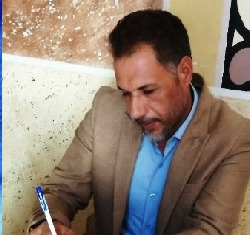JPost Editorial: Sukkot is the time to set aside our differences and make progress
The late Rabbi Lord Jonathan Sacks called Sukkot the festival of insecurity. Sukkot, he argued, is a metaphor for the Jewish condition not only during the 40 years of wandering in the desert but also the almost 2,000 years of exile and dispersion.A Sukkot Guide for the Perplexed, 2023
“I have often argued that faith is not certainty: faith is the courage to live with uncertainty,” Rabbi Sacks explained. “I find that faith today in the people and the State of Israel. It is astonishing to me how Israelis have been able to live with an almost constant threat of war and terror since the state was born, and not give way to fear.”
He quoted the Rashbam, Rashi’s grandson, as saying that Sukkot exists to remind us of our humble origins so that we never fall into the complacency of taking freedom, the Land of Israel, and the blessings it yields, for granted.
“Today’s Israel is a living embodiment of what it is to exist in a state of insecurity and still rejoice,” Sacks stated succinctly. “And that is Sukkot’s message to the world.”
The 21st century, he predicted, will one day be seen by historians as the Age of Insecurity. “We, as Jews, are the world’s experts in insecurity, having lived with it for millennia,” he wrote. “And the supreme response to insecurity is Sukkot, when we leave behind the safety of our houses and sit in sukkot mamash (literally), in huts exposed to the elements. To be able to do so and still say, this is zeman simchatenu, our festival of joy, is the supreme achievement of faith, the ultimate antidote to fear.”
Faith is the ability to rejoice in the midst of instability and change, traveling through the wilderness of time toward an unknown destination, Sacks concluded.
This year, when both Israel and the Diaspora are so deeply divided, it is incumbent upon us to set aside our differences and come together on Sukkot to celebrate the 75 years of our independence as well as our resilience as a people and replenish our faith for the future.
Chag Sameach (Happy Holiday)!
Ahead of Sukkot, which begins on Friday, here are some interesting facts about the holiday:
1. Sukkot, the Feast of Tabernacles, derives its name from the first stop of the Exodus — the town of Sukkot — as documented in Exodus 13:20-22 and Numbers 33:3-5. Sukkot was also the name of Jacob’s first stop west of the Jordan River, upon returning to the Land of Israel from his 20 years of work for Laban in Aram (Genesis 33:17).
2. Sukkot is a Jewish national liberation holiday, commemorating the Biblical Exodus, and the transition of the Jewish people from bondage in Egypt to liberty. It also celebrates the ongoing Jewish in-gathering in the Land of Israel. The Exodus from Egypt inspired the US Founding Fathers and also the abolitionist movement.
3. The construction of the Holy Tabernacle, during the Exodus, was launched on the first day of Sukkot (full moon).
4. Sukkot underscores the gradual transition from the spiritual state-of-mind during Rosh Hashanah and Yom Kippur to the mundane of the rest of the year, and from religious tenets of Judaism to the formation of the national, historic and geographical Jewish identity.
5. The seven days of Sukkot — a holiday celebrated in the seventh Jewish month, Tishrei — are dedicated to seven supreme guests-in-spirit and notable care-takers: Abraham, Isaac, Jacob, Joseph, Moses, Aaron, and David. They were endowed with faith, reality-based-optimism, humility, magnanimity, principle-driven leadership, compassion, tenacity in the face of daunting odds, and the mentality of peace-through-strength.
6. Sukkot features the following four species (Leviticus 23:39-41): one citron (representing King David, the author of Psalms), one palm branch (representing Joseph), three myrtle branches (representing the three Patriarchs), and two willow branches (representing Moses and Aharon, the role models of humility), which are bonded together, representing unity-through-diversity and strength-through-unity.
Helen Mirren attends UK premiere screening of Golda
Dame Helen Mirren has attended the UK premiere of Golda ahead of it's release in cinemas.
The actress, 78, plays Israel’s first female prime minister Golda Meir in the biopic, which is released on October 6.
The biopic is set during the 1973 Yom Kippur War, when Egyptian and Syrian forces launched an attack on Israel on the High Holy Day.
It examines the decisions the politician made during the height of the 19-day war, which saw 2,656 Israeli soldiers killed.
In an interview in Israel in July, Dame Helen described preparing for the role of playing Meir by reading her autobiography and watching footage of the former Israeli PM.
The actor added she “didn’t know a lot about Meir” but recalled “the feeling of triumph and satisfaction" that a woman had been elected to lead Israel for the first time.
Dame Helen's casting as Meir has reignited a debate about whether or nor non-Jewish actors should take on Jewish roles.
Commenting on the subject, the veteran performer, who is not Jewish, has said she does "believe it is a discussion that has to be had" and that questions about her playing Meir were "utterly legitimate."
Dame Helen has portrayed Jewish characters in the past, including in the 2023 war drama White Bird, in which she played a woman who survived Nazi-occupied France as a youngster with the help of a non-Jewish boy from her school and his family who sheltered her.
In the 2015 film Woman in Gold, she starred as Maria Altmann, a Jewish refugee living in California who fought the Austrian government to reclaim a painting of her aunt by famed Austrian painter Gustav Klimt.
Speaking of her Meir role, she added: “Golda Meir was a formidable, intransigent and powerful leader.
“It is a great challenge to portray her at the most difficult moment of her extraordinary life. I only hope I do her justice!”
Crushing the Zionist movie #Golda, QUNTS will release YASSER, the true story of an impoverished boy, born on the tough streets of Cairo, Southern Palestine. At 6, Yasser escaped Zionist jail in French Guinea, swimming back to Jaffa where he single-handedly freed Palestine.
— Qunts News Network (@QuntsNews) September 28, 2023
✌🏾🇵🇸 https://t.co/5z37HYl1XK pic.twitter.com/WopvdMvKIv




















